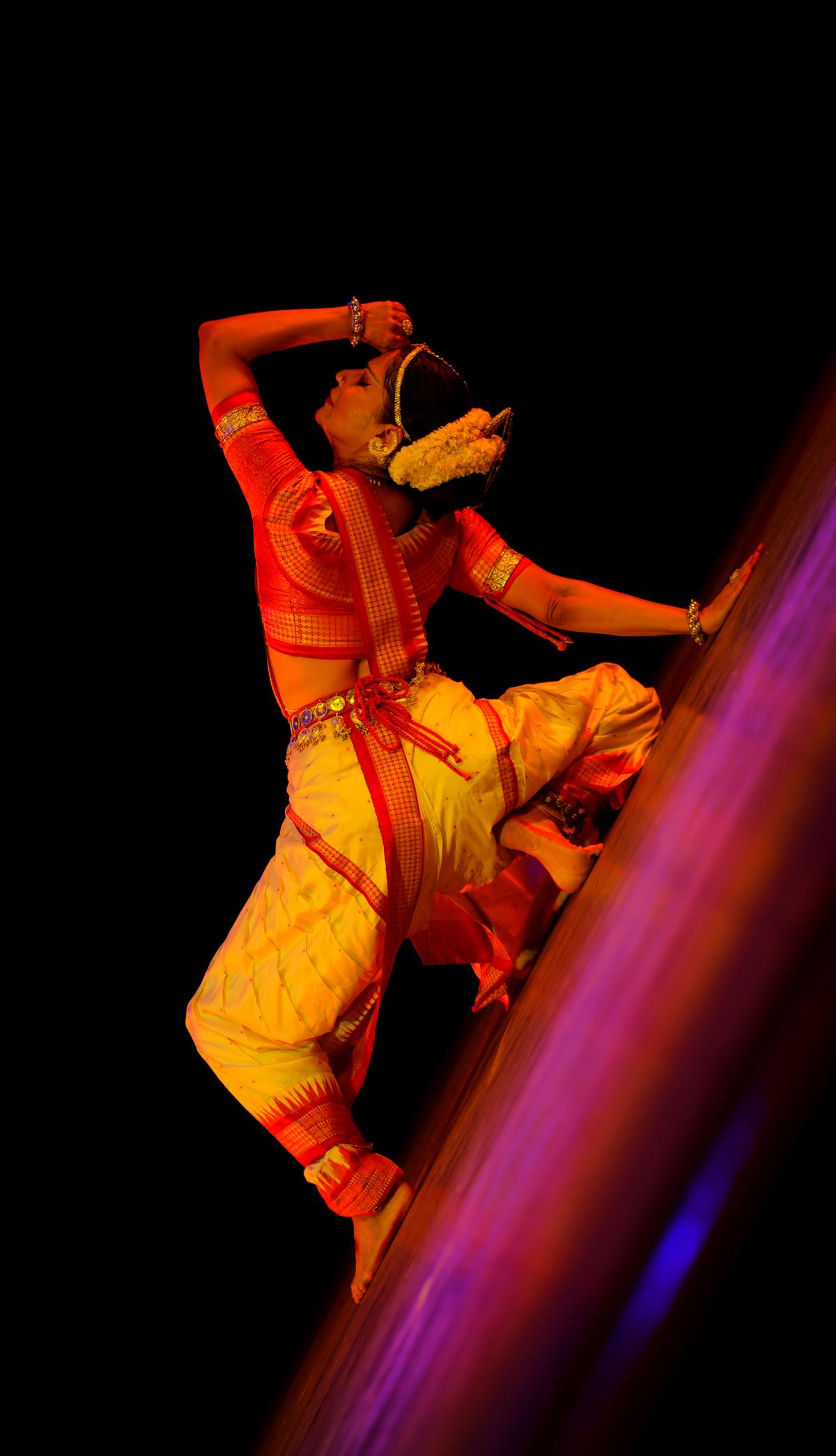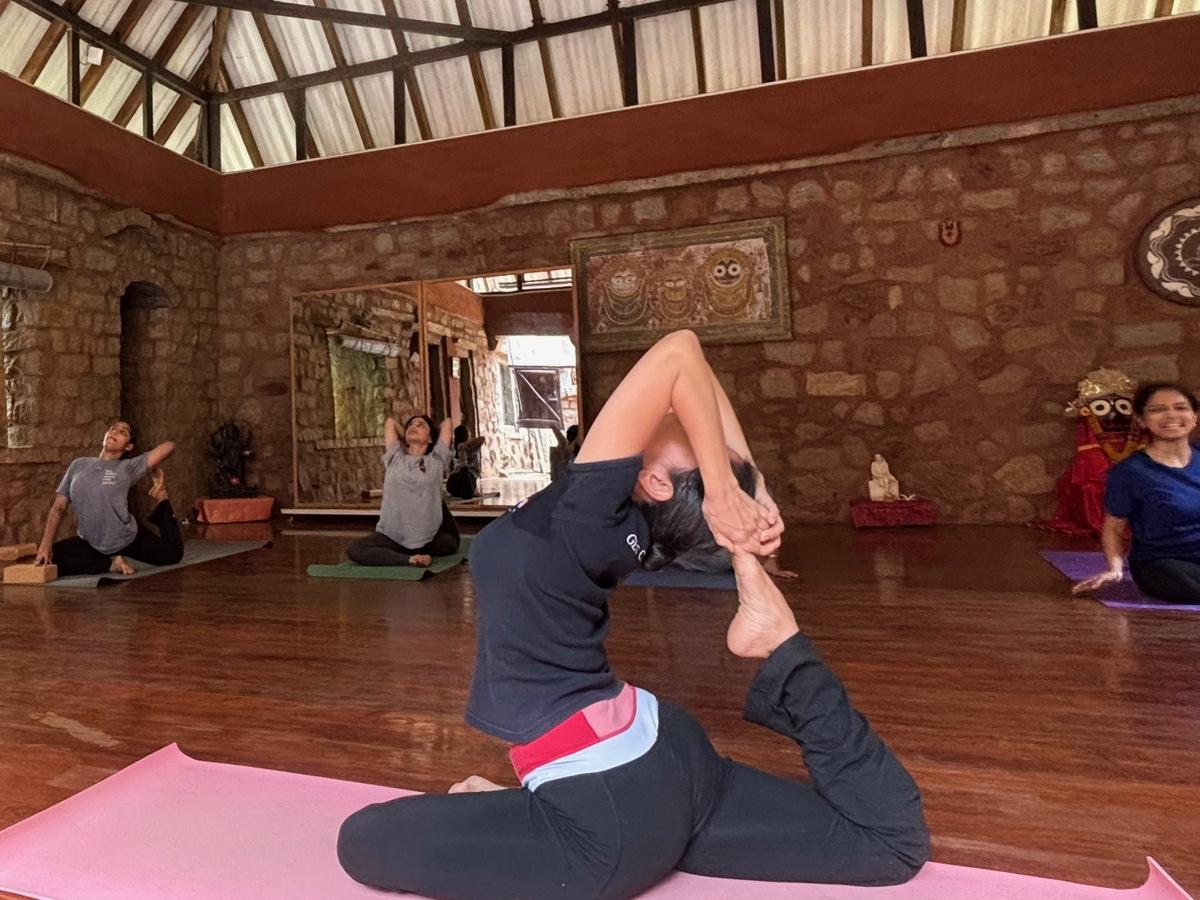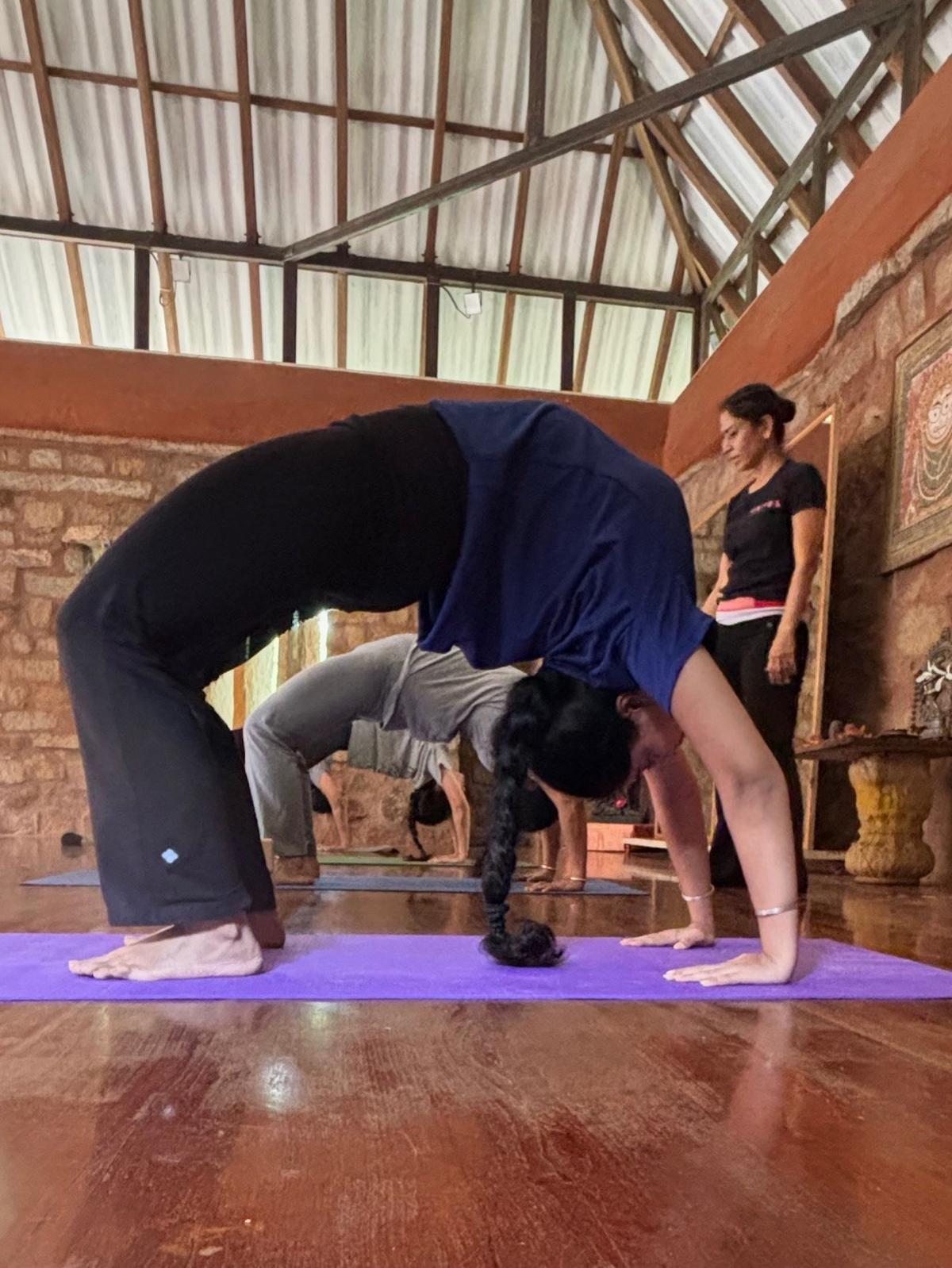
Surupa Sen | Photo Credit: Karthik Venkatraman
“Run! Run faster and you will get there quicker!”, is all we hear and do in our lives. We are constantly surrounded by the demand to cope no matter how. On the other end of the spectrum, our ancient practices teach us to be still.
Yoga and classical dance are both indigenous traditions of India that seek the same goal — to be aware of the breath and let the Praana guide every action. To engage both the body and the mind to act at once for a holistic experience. The ancient practices suggest that we pause to engage deeply with life, and compassionately with ourselves.
Yoga enables the mind-body balance that help us make better choices for living.
Dancers are complex movement artistes. They have to be contortionists, martial artists, poets, story tellers and sculptors all at once. They do not just bring an idea to life when they dance but create life itself in each moment. As a dancer, my body changes every moment to adhere to a complexly shifting mind. From the slightest quiver of a lip and the fleeting angle of the eye to the gentle tremble of a finger, all come together to express a single nuanced emotion.
.

For dancers, body is a living instrument
| Photo Credit:
Karthik Venkatraman
For a dancer, the body is a living instrument. If my body must go to places that my mind seeks in its imagination, I must train to stretch its potential so that I may inhabit those boundless worlds. Thus when the body, mind and spirit come together, we have reached our goal.
Martha Graham, the great contemporary dancer and choreographer said, “I am a dancer. I believe we learn by practice. Whether it means to learn dance by practicing dancing or to learn to live by practicing living”.
In the pursuit of excellence, for the past 35 years that I have lived the life of a dancer at Nrityagram, yoga and other kinds of cross-training has been integrated into our daily schedule. For years now, we have studied and developed body kinetics that combine different perspectives of training to specifically nourish and inform the Odissi body. In my initial years as a student, I found a lacuna in the application of yoga practice to the lines of alignment within which the Odissi dancer must function. Most practitioners of yoga may not be dancers or necessarily understand the forces acting on a dancer’s body. I felt this to be the central reason for the injuries I faced as a dancer. I therefore attempted to understand on my own through research and study ways to heal myself and to ensure that none who trained with me would suffer the same damage. Choosing selectively from different forms of body work, we created a curriculum that would enhance our potential as performers.

Dancers during yoga sessions at Nrityagram.
| Photo Credit:
Courtesy: Nrityagram
At Nrityagram, the dancers begin their day with a walk or run, then clean the gurukul spaces, followed by body conditioning exercises. Each day is a different model that must respond to the body’s need for that particular day. In order to do that, the dancers must first prepare their mind so that it assimilates the body’s needs ensuring the right choice of exercises to better their practice for that day. Each bone and muscle must be oxygenated and lubricated to sufficiently deliver at the highest level. Once this preparation is complete, a further warm-up is done in class before the rigour of complex dance vocabulary is undertaken. After many hours on the dance floor, we allow the body time to de-stress with stretches that are suited for each dancer to recover as quickly as possible.
Nrityagram has been at the very forefront of establishing the idea that the longevity of a dance career depends on the adequate protection and respect we must give to and have for our bodies. Both choreographically and as performers, we have pushed our abilities to render new dimensions of skill in the classical dance world. This, in turn, has inspired artistes to explore new and more efficient ways of working both in Odissi and other dance styles.

Yoga and dance together can help achieve both yogic stillness and a flexible body.
| Photo Credit:
Courtesy: Nrityagram
Dance traditions in India have been handed down through generations of artistes. As we gaze at the dancing figures on temple walls, we seek what they have — both yogic stillness and flexible body. Yoga and dance together can help us achieve this.
Though AI and bots have entered the human space and threaten to do all that we can, it cannot for now express what the dancer’s body can. Until then, let us continue to nourish this extraordinary instrument called the human body through yoga and dance.
Published – June 19, 2025 06:21 PM is







